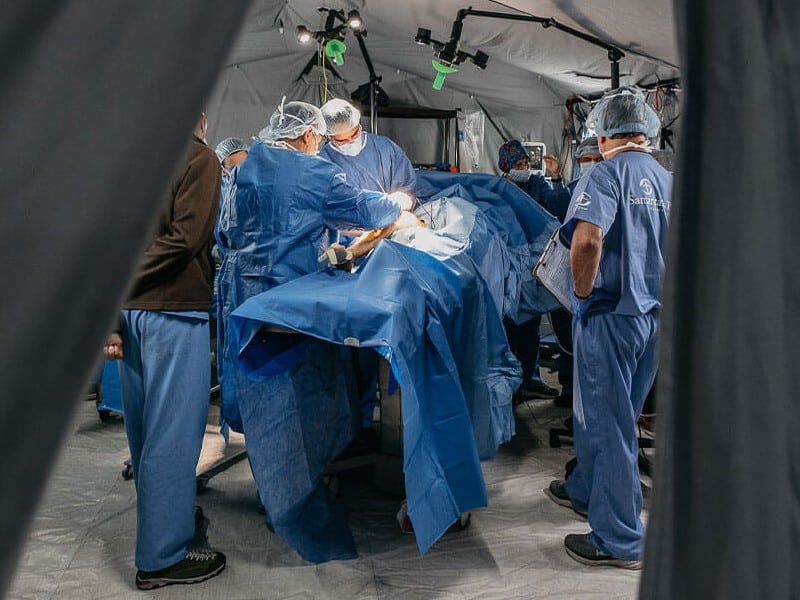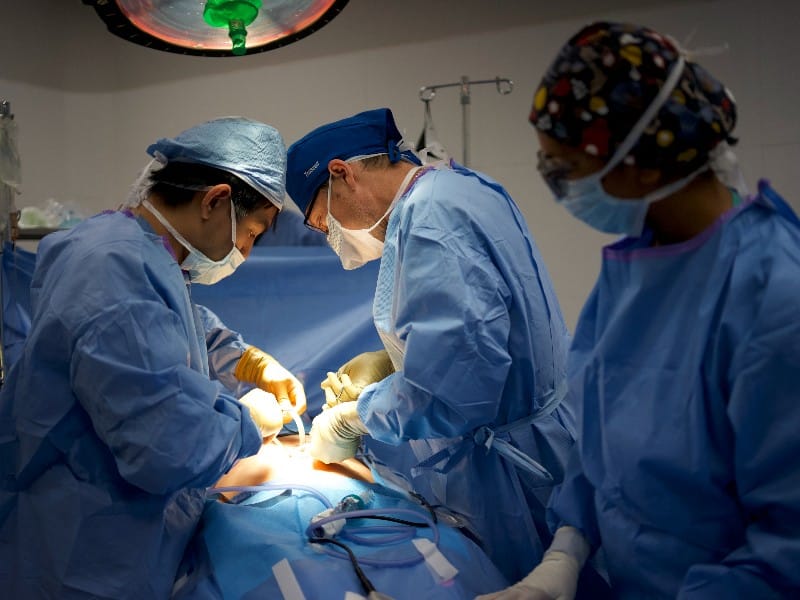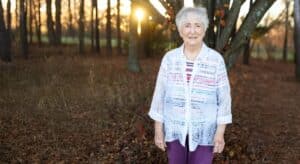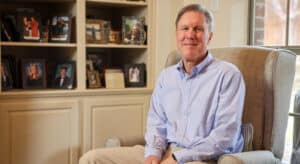The war in Ukraine has devastated the country’s healthcare system, and access to medical care remains a big challenge a year after the conflict began. It’s this need that galvanized Danny Holland, DO, orthopedic surgeon on the medical staff at Methodist Dallas Medical Center, to volunteer in a war zone.
In October 2022, Dr. Holland joined a medical team that traveled to eastern Ukraine, about 30 miles from the front lines, to staff an emergency field hospital run by international relief organization Samaritan’s Purse. He’s been home for months but was only recently cleared to discuss the trip, for security reasons.
The decision to go was a “no-brainer,” Dr. Holland says, even though it meant spending a month away from his wife and five daughters.
“For me, it really is a calling,” he adds. “I would definitely go back if given the chance.”
DANGEROUS CONDITIONS
Dr. Holland started his journey to Ukraine by flying to Poland where he met the rest of the volunteer team. Then, they traveled to Kyiv before taking a bus to their ultimate destination. Because of security concerns, the volunteers weren’t told where they were going ahead of time.
Samaritan’s Purse had set up the hospital near the Russian border. Because the city and its surrounding area had no electricity or running water, the hospital relied entirely on a water purification system and deliveries of donated supplies, including generators, diesel heaters, and food.
“We never really left the hospital building just due to safety concerns. The medical personnel just slept in the basement. We had cots and sleeping bags,” Dr. Holland explains. “Right before I got there, there was some intel that the hospital was being targeted, and the crew before me spent four days in lockdown in the basement.”
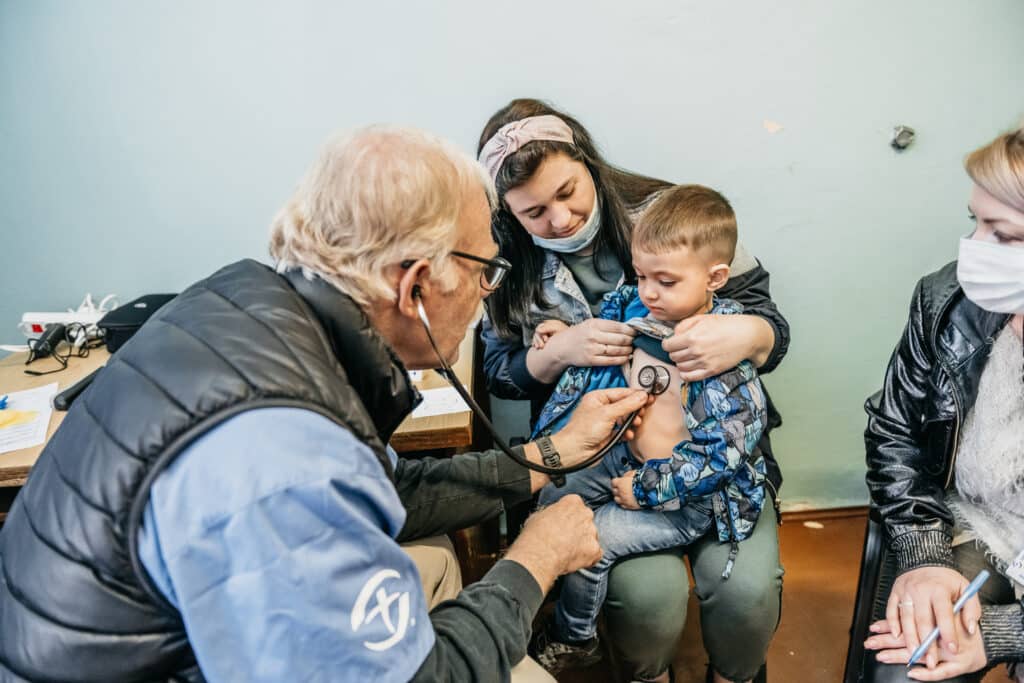
Photos from Ukraine courtesy of Samaritan’s Purse
WORKING IN A WAR ZONE
Volunteers also had to give up their electronic devices, so communication with loved ones was sporadic at best. They were stationed close enough to see and hear the fighting from the rooftops.
“Every patient had a story to tell,” Dr. Holland says. “One person told me, through an interpreter, that he was scared to sleep at night because he had lost so many people. He’d wake up and a neighbor would be gone or someone would be missing, so he told us he’d sleep during the day.”
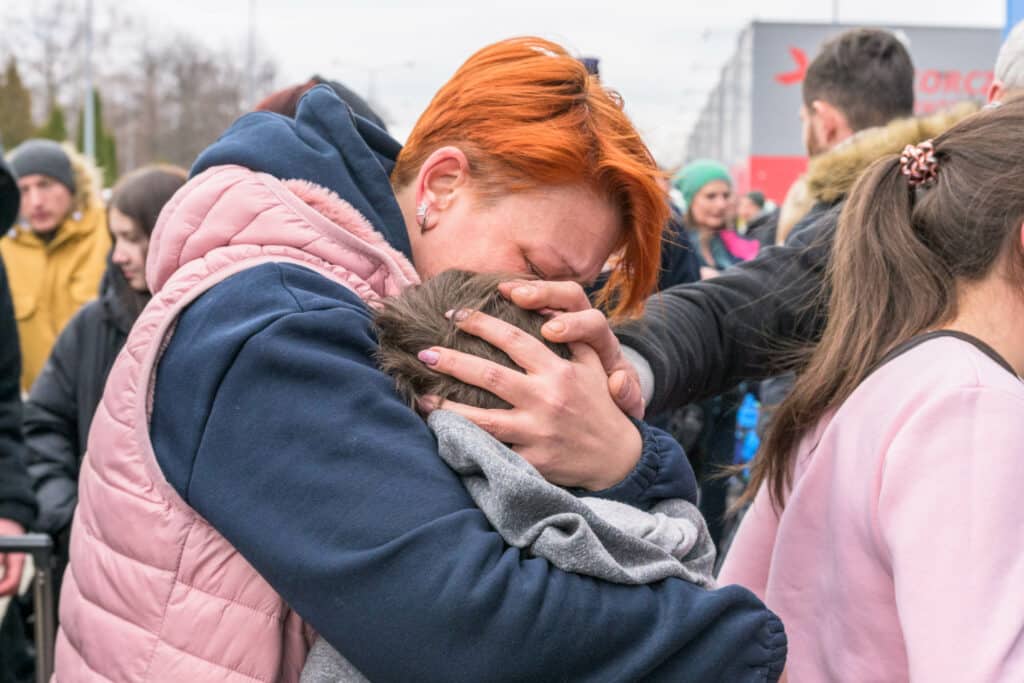
The hospital helped thousands of patients with a wide variety of critical needs, from diabetes medicine to frostbite treatment to complex surgeries.
“There was a general surgeon and then myself. We did the orthopedic procedures. We really were on call 24/7, whenever they needed our services,” Dr. Holland says. “A lot of the patients had frostbite. They were without electricity or natural gas to heat their homes.”
A HUG AND A HOMECOMING
After four weeks in Ukraine, Dr. Holland returned home to North Texas. He says he will always remember the experience and the patients he treated — some of whom had waited months for medical care.
“When I came back to the United States, I just found myself teary-eyed sometimes when driving to work, thinking of the people and the suffering,” he adds. “And they were so appreciative of the help. It really meant something.”
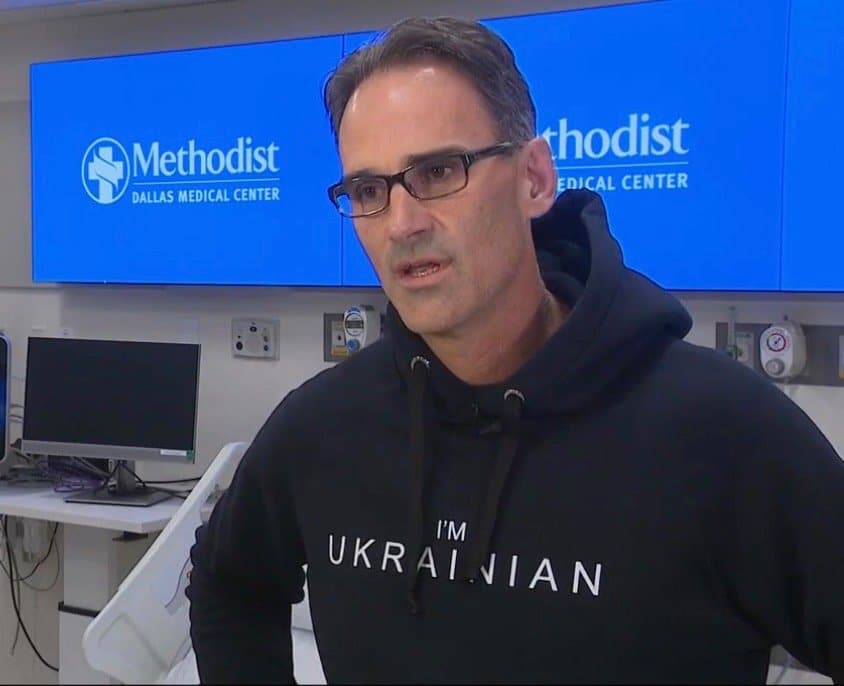
As a token of gratitude, someone had given Dr. Holland a sweatshirt that says, “I’m Ukrainian,” as a symbol of pride and resilience. Another patient could not speak English, but she gave each member of the volunteer team a hug in thanks.
“She didn’t have to say anything, but as she walked out, one of the interpreters told us she said to her daughter, ‘I’ve never seen people like that,'” Dr. Holland recalls. “I’d do it all over again, just for that hug.”

